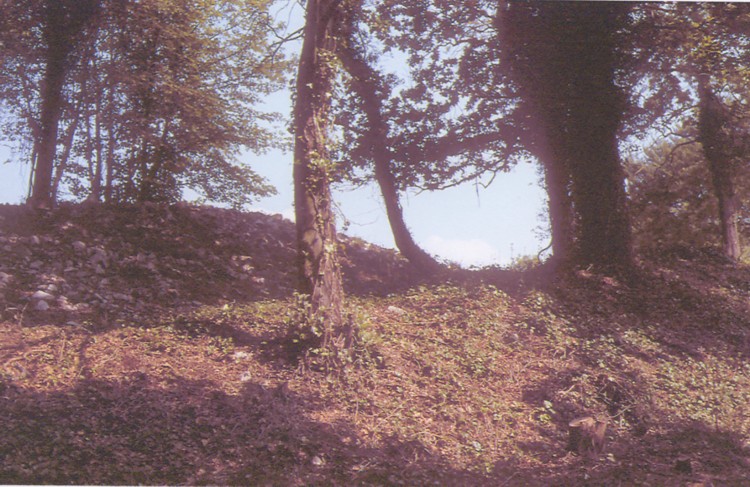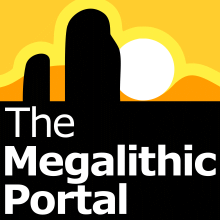<< Feature Articles >> The Origins of the Dobunni - 'The Dark-haired people'?
Submitted by Arjessa on Wednesday, 19 April 2006 Page Views: 34317
Other ArchaeologyCountry: England County: GloucestershireInternal Links:

It is my belief that some of this tribe may have sailed to the coastline of Somerset, thereby beginning the Dobunni. Indeed, the Dobunni are understood to have traded with the Coriosolites of ancient Amorica (Brittany), and the fact that the name of 'Corio' appears on some of the early Dobunnic coinage may be more than a mere coincidence. I should like to suggest that this is in fact stating the origins of the tribe itself. It may well be that the chief of that time did perhaps take the name of Corio from the name of their forefathers as a mark of respect, or as a way of remembering their ancestors.
While this group of Iberians had landed at Brittany and Somerset, further groups set sail towards Ireland and other parts of Southern England and Europe.
This brings us to the tribal name of 'Dobunni', the meaning of which has never been explained. The spelling of the name 'Dobunni' can no doubt be ascribed to the Roman Latinisation as to the pronunciation of the word. Now, if one was to sound each syllable out, then convert the same sound into the Irish Gaelic spelling, we get the following;
'DUBH' pronounced "Doo" which means, dark or black-haired.
'BUNAITHE' "Boo-Nee" = established OR
'BUNAICH' "Boo-Nee" = establish, found, set (up), start. OR POSSIBLY,
'BUNADH' "Boo-Na" = people, inhabitants AND
'BUNAIOCH' "Boo-Na' = primitive
Putting this simply, the name 'Dobunni' means literally, either (The) 'DARK-HAIRED (ONES) ESTABLISHED (THIS PLACE)' or perhaps just (The) 'DARK-HAIRED PEOPLE'.
Such a tribe would have stood out against the fair-haired Celts who came along later. Indeed, one only has to look at the dark-haired Spanish and Portuguese, together with many of the Irish and long term residents of Somerset who still retain the dark hair of the Dobunni to see the connection.
Meanwhile, the Iberian connection to the Dobunni is further supported by the Beaker pottery sherds and vessels unearthed, and in the style of hill-forts which they left behind, in particular those at Worlebury and Dolebury which use stone in construction of the ramparts. Similar types of hill-forts which use stone for their defences can be found in Spain and Portugal, and with some of likewise construction also to be found in Ireland.
Further to the meaning of the Dobunni name, I believe it is quite possible that the language of the Dobunni may well have been closer to the Irish Gaelic than to the Brythonic Welsh supposedly spoken by the Celtic/British Tribes. No doubt an amalgamation of these languages could have occurred over the centuries. The original Gaulish spoken on the continent became extinct during the onset of Christianity and the eventual changeover to Latin.
With the arrival of the Celtic tribes, there were bound to have been a few inter-tribal marriages between the Dobunni and the Celts once peace was established, or perhaps as a means of establishing peace between one or more of the Belgic groups. However, I believe that the Dobunni remained essentially 'THE DARK-HAIRED PEOPLE'.
BIBLIOGRAPHY:
1908: "Earthworks of England", Allcroft, A H MacMillan & Co Limited, London.
1977: "The Bell Beaker Cultures of Spain and Portugal", Harrison, Richard J; Havard Univ., Cambridge, Mass.
1980: "Worlebury, The story of the Iron Age hill-fort at Weston-super-Mare", Woodspring Museum.
1998: "Wroxeter, Life & Death of a Roman City", White, Roger & Barker, Philip, Tempus Limited, Gloucs.
1999: "Irish Dictionary", Harper Collins, G.B.
1999: "Irish First Names", Harper Collins, G.B.
FOOTNOTE: This paper was first printed in the CBA South-West Journal No. 8, Winter 2002, as member's contribution.
<< Astronomer Unearths Evidence of Scientific Tradition in Africa
Ancient Astronomy in Portuguese 'Mesopotamia', a summary in English >>






 We would like to know more about this location. Please feel free to add a brief description and any relevant information in your own language.
We would like to know more about this location. Please feel free to add a brief description and any relevant information in your own language. Wir möchten mehr über diese Stätte erfahren. Bitte zögern Sie nicht, eine kurze Beschreibung und relevante Informationen in Deutsch hinzuzufügen.
Wir möchten mehr über diese Stätte erfahren. Bitte zögern Sie nicht, eine kurze Beschreibung und relevante Informationen in Deutsch hinzuzufügen. Nous aimerions en savoir encore un peu sur les lieux. S'il vous plaît n'hesitez pas à ajouter une courte description et tous les renseignements pertinents dans votre propre langue.
Nous aimerions en savoir encore un peu sur les lieux. S'il vous plaît n'hesitez pas à ajouter une courte description et tous les renseignements pertinents dans votre propre langue. Quisieramos informarnos un poco más de las lugares. No dude en añadir una breve descripción y otros datos relevantes en su propio idioma.
Quisieramos informarnos un poco más de las lugares. No dude en añadir una breve descripción y otros datos relevantes en su propio idioma.